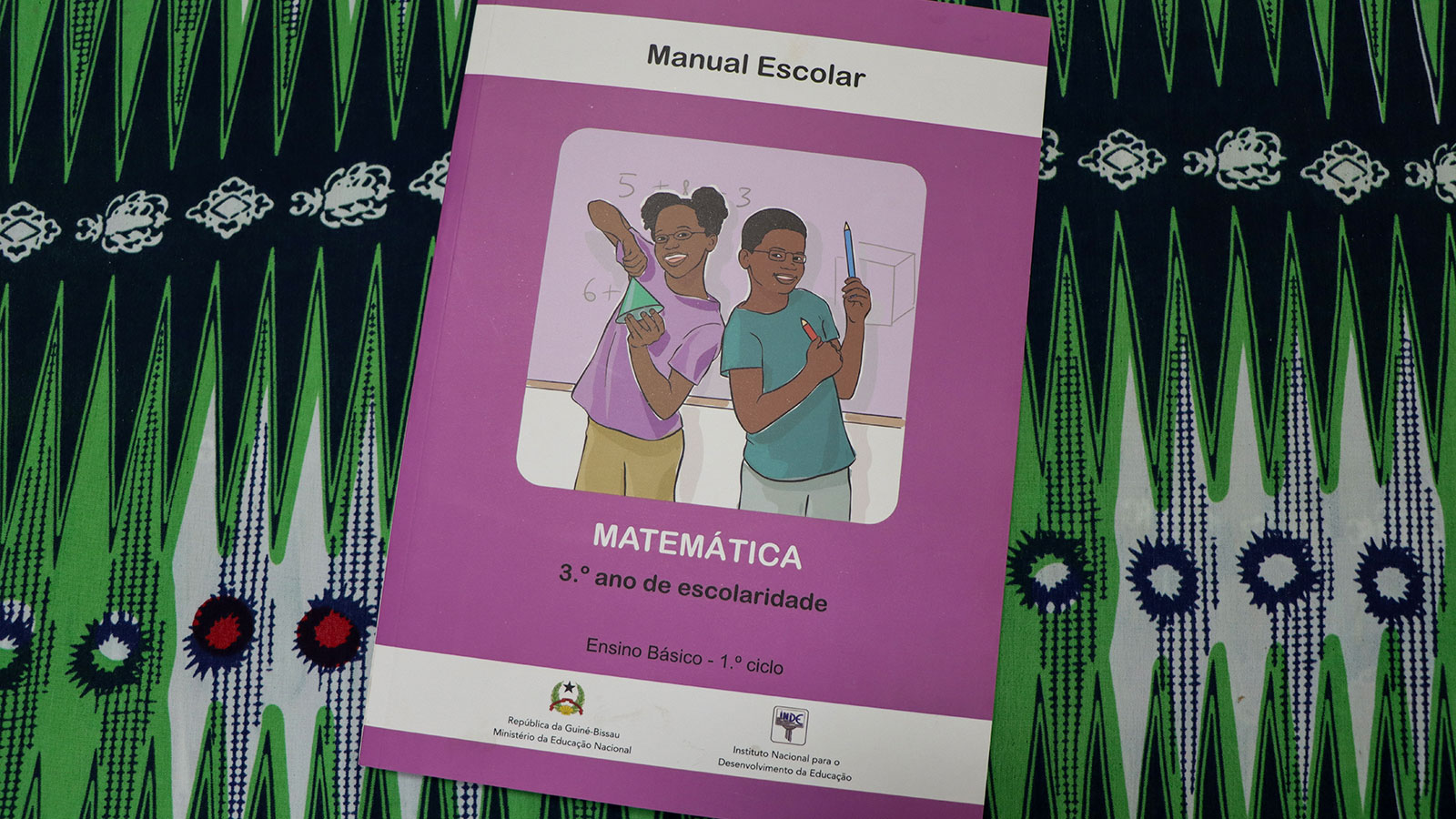Manuals and guides for primary school teaching in Guinea Bissau

The RECEB project – the Curricular Reform of Primary Teaching in Guinea Bissau was launched in 2016 and counted on the coordination of the INDE – the National Institute for the Development of Education. For the first cycle, this included designing the programs/program guidelines, the exercise books /school manuals for students and guides for the teachers with an overall total of 34 exercise books/manuals and guides. The project also involved the production of 200 audio-classes for supporting Portuguese and Mathematics teaching in the first and second years. All of these materials are also available in a digital application that operates offline via computer tablets that are to be provided for teachers.
Between 2022 and 2024, training sessions were held for around 60 teachers/advanced trainers and 3,000 primary school teachers (1st to 4th school years) across the five regions in Guinea Bissau where the project underwent development in an experimental phase: Autonomous Sector of Bissau; Cacheu; Bafatá; Quinara; Oio.
In 2024/25, the Curricular Reform of the primary cycle (1st to 4th years) is undergoing expansion to all of the country with training for teachers in the regions only now entering the project already scheduled.
The general objective of the RECEB project is to provide technical assistance to the INDE throughout the process of developing and implementing a new curriculum for the primary teaching cycle coupled with teacher training to deepen their scientific knowledge and pedagogic competences.
This initiative aims to improve the outcomes in terms of the literacy and numeracy of 1st cycle students and thereby raising the quality of education provided to Guinean children.
To implement the first project phase covering the 1st to 4th years, the National Institute for the Development of Education in Guinea Bissau counted on financing from UNICEF at the beginning and, at a later stage, the World Bank, within the framework of the “Quality Education for All” project, a partnership with and co-financing from the Calouste Gulbenkian Foundation and with the University of Minho providing technical support.
